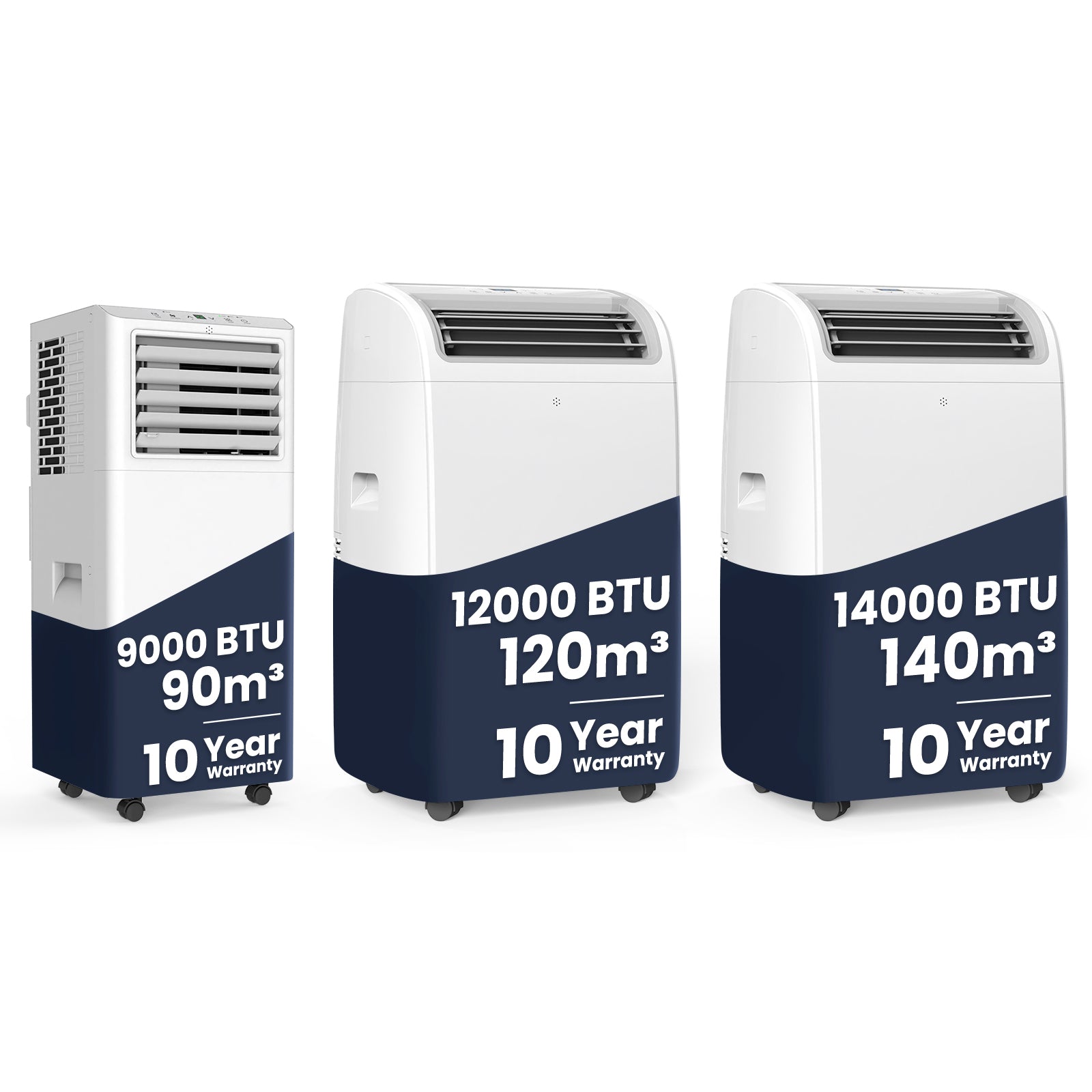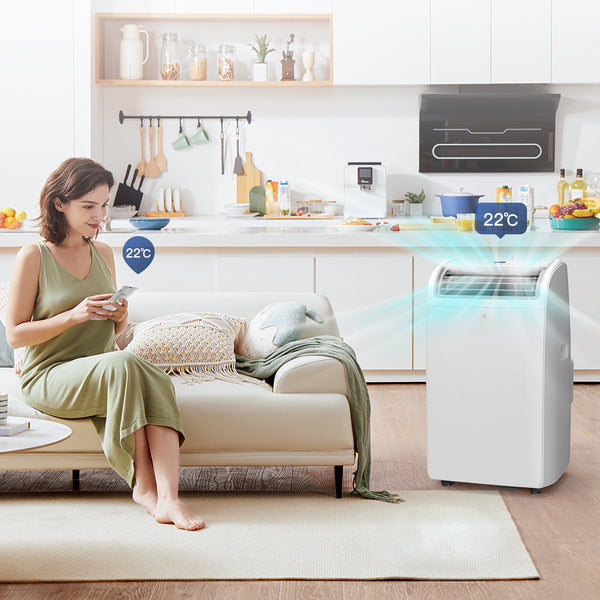1. What is the most quiet portable air conditioner?
The quietest portable air conditioners typically operate between 50–55 decibels. The Newentor portable air conditioner (54 dB) is among the quietest models on the market, featuring a custom TCL compressor, a dual motor cooling system, and a low-vibration compressor to minimize noise at the source. Priced at under 500 AUD, it offers one of the best value-for-money options for portable air conditioning in Australia.
2. How to quiet a noisy portable air conditioner?
-
Choose a low-noise model – Opt for units with a noise rating below 55 dB for quieter operation.
-
Use vibration-dampening surfaces – Place the unit on a soft mat or anti-vibration pad to reduce sound transmission.
-
Ensure proper exhaust hose setup – Make sure the hose is installed correctly and free of kinks, as poor ventilation can increase noise.
-
Keep filters clean – A clean filter prevents the unit from overworking, which can lead to higher noise levels.
-
Activate quiet or sleep mode – If available, use these settings to lower fan speed and reduce operational noise.
-
Position it strategically – Place the AC away from main seating or sleeping areas to minimize perceived noise.
3. Why Noise Level Matters When Choosing a Portable AC?
Noise level is a critical factor when choosing a portable AC because it directly impacts your comfort and well-being, especially if you plan to use the unit in a bedroom, home office, or other quiet space. Unlike central air conditioning, which keeps the noisy components outside, a portable AC houses the compressor and fan in a single unit right in the room with you. This makes noise a much more prominent consideration.
Impact on Sleep and Comfort
A noisy portable AC can make it difficult to sleep, work, or relax. The noise from a portable AC typically comes from two main sources: the compressor and the fan. While the consistent hum of a fan can sometimes act as a form of "white noise" for some people, the loud, cycling sound of a compressor can be highly disruptive, making it hard to fall asleep and stay asleep. Prolonged exposure to disruptive noise can lead to poor sleep quality, increased stress levels, and reduced concentration.
Noise level is measured in decibels (dB). To put this in perspective:
- 30 dB is like a whisper or a quiet library.
- 40-50 dB is a quiet conversation or the hum of a refrigerator.
- 60 dB is the sound of a normal conversation or a dishwasher.
- A difference of just a few decibels can be significant; a 3 dB increase doubles the perceived loudness.
Most portable AC units operate in the 50-60 dB range on their highest setting. For a quiet environment like a bedroom or office, look for units with a decibel rating of 55 dB or below, with some of the quietest models operating in the 40-45 dB range on their low or sleep settings.

























